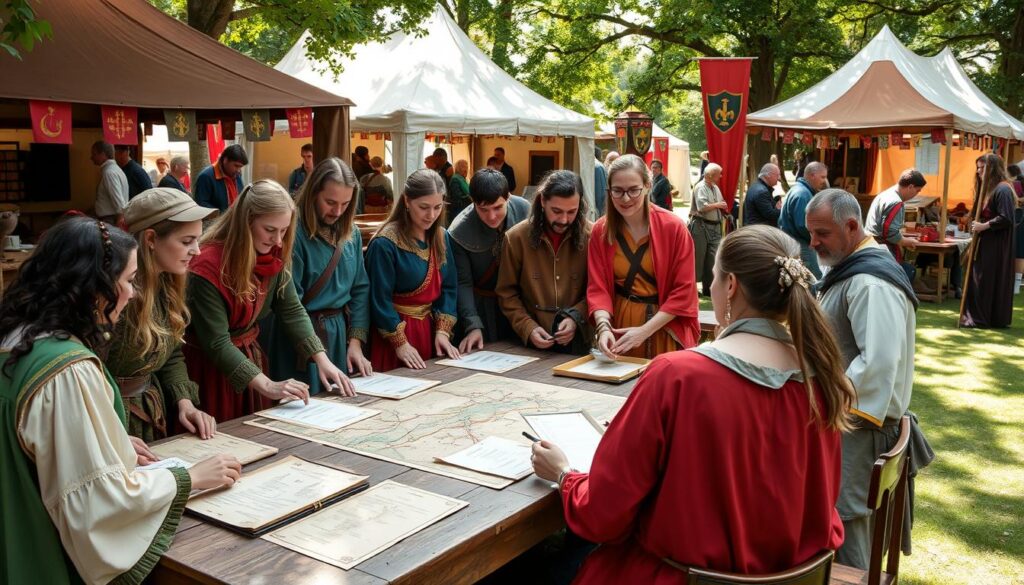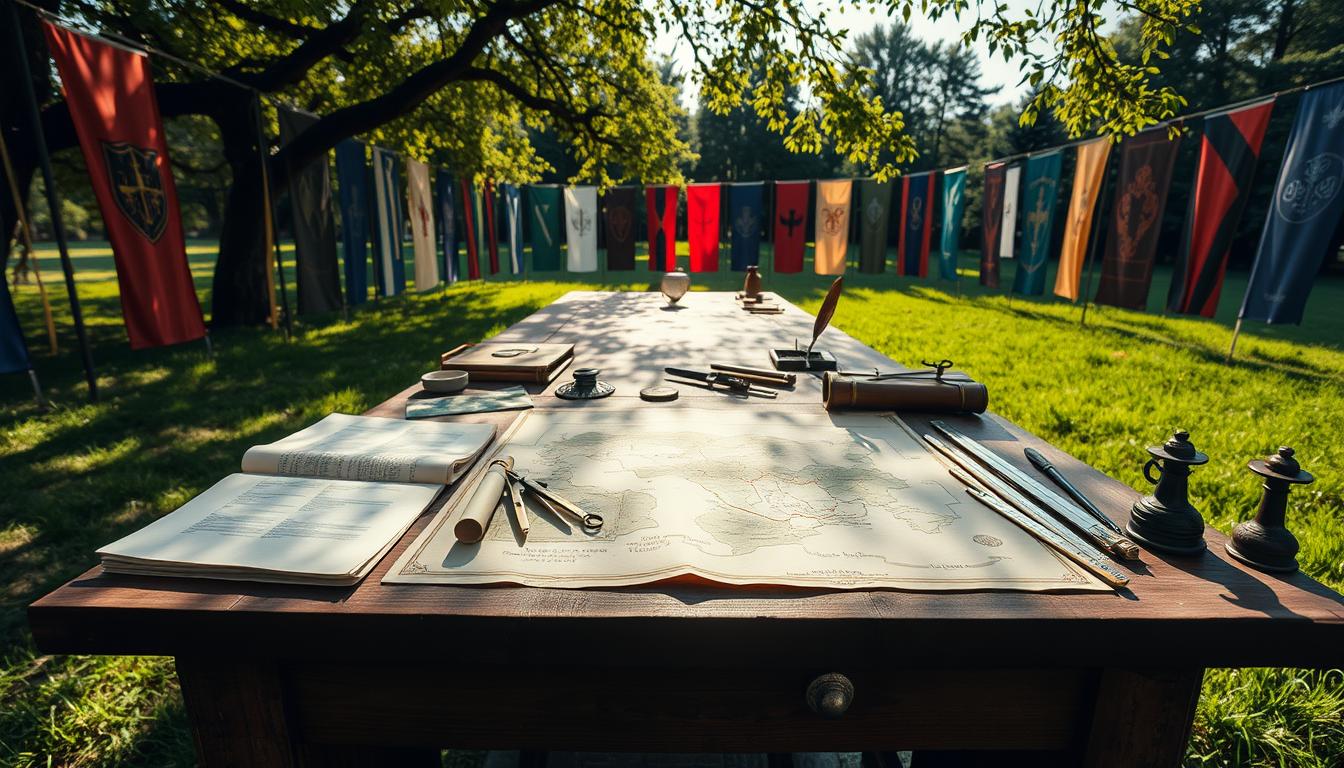Planning an SCA event needs careful planning and knowing about historical recreation. To autocrat an SCA event, you must organize activities, logistics, and engage participants. The autocrat is the main person in charge, making sure everyone has a great time.
Good event planning means paying close attention to every detail. You’ll need to handle historical activities like tournaments and bardic performances. You also need to make sure everyone can join in and is happy.
This guide will help you understand what it takes to autocrat an SCA event. You’ll learn how to make events that feel like stepping back in time. But, you’ll also keep things safe and organized for today’s standards.
Key Takeaways
- Understand the comprehensive role of an SCA event autocrat
- Master event planning techniques specific to historical recreation
- Learn strategies for managing diverse participant activities
- Develop skills in logistical coordination and volunteer management
- Create immersive historical experiences with modern organizational precision
Getting Started as an SCA Event Autocrat
Starting your journey to organize an SCA event successfully needs careful planning. The SCA event world can be tough for newbies. But, with the right steps, you can become a great event autocrat.
Planning an event is more than just wanting to do it. Successful event management means having a strong support team and knowing what’s needed.
Finding Your Mentor and Support Network
When you start to autocrat an SCA event, finding experienced helpers is key. Studies show that having mentors helps keep volunteers happy and around longer. Here’s how to find them:
- Go to local group meetings to meet experienced SCA members
- Look for autocrats who can guide you
- Join SCA forums and groups online
- Ask to shadow successful event planners
Initial Planning and Timeline Development
Creating a detailed timeline is vital for a successful SCA event. Break big tasks into smaller ones to avoid overwhelming volunteers. Important planning steps include:
- Make a detailed event checklist
- Set clear milestone dates
- Give out specific tasks
- Leave extra time for surprises
Understanding Kingdom and Local Requirements
Every SCA kingdom has its own rules and needs. Make sure your event fits all local standards. Talking to your local group’s leaders can give you key insights.
*The secret to a successful SCA event is preparation, communication, and community collaboration.*
How to Autocrat an SCA Event: Essential Steps
Organizing an SCA event needs careful planning. It starts with knowing the key steps to make it a memorable event.

- Select a compelling historical theme
- Secure an appropriate venue
- Develop a detailed budget
- Create comprehensive event registration processes
Planning an event needs a lot of detail. First, make a clear vision for your event. It should excite SCA participants. Your theme should take them back in time, making it feel real.
| Planning Stage | Key Considerations | Recommended Timeline |
|---|---|---|
| Initial Planning | Theme Selection | 6-8 months prior |
| Venue Preparation | Site Booking | 4-5 months prior |
| Event Logistics | Budget Finalization | 3-4 months prior |
“Successful event autocratting is an art of balancing historical authenticity with practical planning.” – SCA Event Coordinator
When organizing an SCA event, plan fun activities that fit your theme. Think about feasts, places to stay, and fun things to do. These will make the event exciting for everyone.
- Break down complex tasks into manageable segments
- Recruit volunteers strategically
- Maintain clear communication channels
- Be prepared to adapt and problem-solve
Your goal is to make an event that feels like stepping back in time. But also, make sure everything runs smoothly.
Building and Managing Your Event Team
Creating a successful SCA event needs more than planning. It requires a strong, motivated team. When you autocrat an SCA event guide, success comes from building and managing your team well.

Recruiting volunteers can be tough. Studies show 40-60% of people might not volunteer because they feel overwhelmed. To make your SCA event a success, you must overcome these challenges.
Volunteer Recruitment Strategies
- Make volunteer tasks smaller to feel less scary
- Give clear, specific jobs with clear expectations
- Start a mentorship program for new volunteers
Task Delegation and Timeline Management
Managing tasks well is key. Use a structured way to give out jobs:
| Role | Key Responsibilities | Time Commitment |
|---|---|---|
| Event Coordinator | Overall event planning | Full event cycle |
| Logistics Manager | Venue and resource coordination | Pre-event planning |
| Communication Lead | Team updates and external communication | Ongoing |
Communication Systems and Regular Updates
Showing appreciation matters a lot. Studies show 70% of volunteers like being recognized. Use a strong communication system, following SCA event management guidelines.
“A well-communicated plan is half the battle in event management.”
Use digital tools to make volunteers feel important and heard. A supportive team can keep volunteers for up to 25% longer.
Conclusion
Learning to autocrat an SCA event is a big journey. It needs passion, dedication, and planning. It’s more than just managing an event. It’s about making a historical experience that brings people together.
By learning about event organization, you gain skills that last. This includes finding volunteers and managing money. These skills help you beyond one event.
Planning a successful event means paying attention to details. It’s important for both small and big events. Guides on SCA events offer great advice.
Your job as an autocrat is cultural and important. You help people learn history, show their talents, and make friends. Every little thing you do makes the event special.
Don’t be afraid to try autocrating an SCA event. Start by talking to experienced people, look at good examples, and be creative. Your hard work will make unforgettable moments and grow the SCA community.

